Tourism professions

The development of the tourism sector, the popularization and availability of travel both within the country and abroad have led to the emergence of a need for specialists who can organize a safe and comfortable vacation for people with different needs and budgets. Today we will tell you what specialties, one way or another related to tourism, exist, where you can learn the chosen profession and what are the requirements for applicants for these vacancies.
Peculiarities
The description of the work of a large travel agency usually looks like this: one specialist is engaged in booking air and railway tickets, the other is in the issuance of visas and insurance, the third receives clients, presents them with tours, talks about the specifics of travel to a particular country. Often, the company's staff also includes a marketer who is responsible for advertising, interacts with the media, and promotes the product on social networks.
Small firms, as a rule, do not have a large staff of specialists, which means that all of the above duties are performed by 1-2 employees.
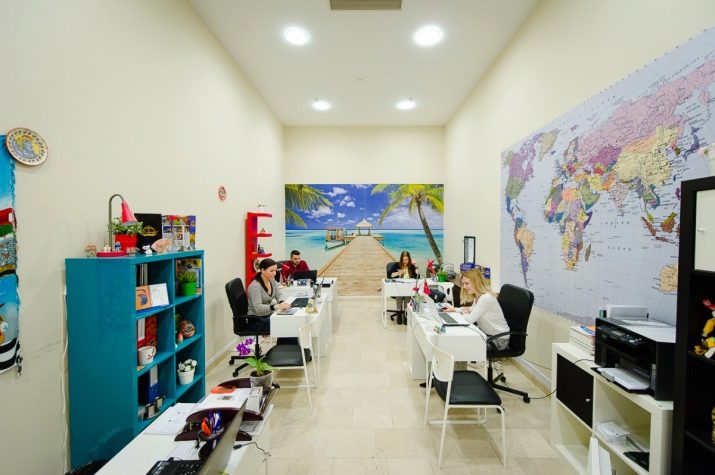
Also, work in the field of tourism includes:
- formation of a base of regular customers;
- knowledge of the features of the routes, the specifics of hotels in the selected country;
- hotel room booking;
- drawing up a route that is optimal for a specific client;
- preparation of a package of documents for entry into a foreign state;
- assistance in resolving conflicts and disputes at the place of arrival.
A travel specialist must be legally savvy, have excellent knowledge of the places where his firm sends tourists (the best season for travel, attractions, cuisine, hotels, etc.).

Pros and cons of the profession
Now let's figure out what are the advantages and disadvantages of working in tourism.
Advantages.
- Getting a job is pretty easy... There are many specialties in this area, some of them only require knowledge of a foreign language, and sometimes you can find a place without any special education, special skills or experience at all.
- If travel is your passion then work in this area will open up great prospects for you, since some of the professions are directly related to frequent travel both within the country and abroad.
- In connection with the development of tourism, more and more companies and directions appear, interesting routes are being developed... Therefore, this area will always be relevant, which means that specialists will also be in demand.
- You can work for yourself... With the necessary knowledge and skills, you can start earning as an independent travel agent (for example, book tickets online and charge a commission for your services) or as a private guide with your own itineraries.
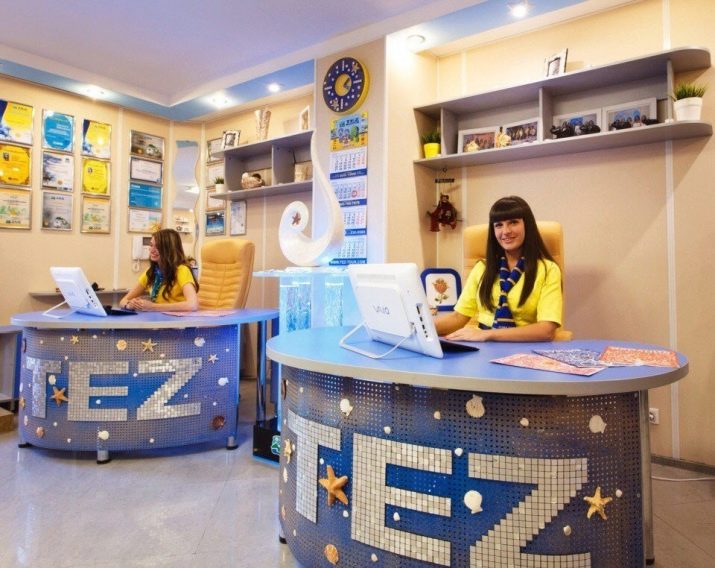
Of course, any barrel of honey has its own fly in the ointment. Consider the disadvantages of the profession.
- You need to learn a foreign language, at least one is English.
- Career can get stuck, since it is a little unclear where, for example, a tourism manager arranging a "turnkey" tour can "grow" - unless you open your own company.
- Must have a number of personal features: be able to and love to contact people, have a presentable appearance, speak friendly and competently, be erudite. Not every person is capable of being a "container" of all these positive qualities.
- The salary of a specialist is not too high, in addition, it directly depends on the number of sold tourist products, which is influenced by seasonality, changes in the visa regime of foreign countries, the cost of flights, etc.
- High stress levels... Unforeseen situations that often arise among tourists staying abroad require the intervention of a specialist: you may need help with documents, resolving disputes at the hotel, solving problems with carriers. All this cannot but annoy to one degree or another, therefore, a person who has chosen a profession in the field of tourism must have considerable resistance to stress and endurance.
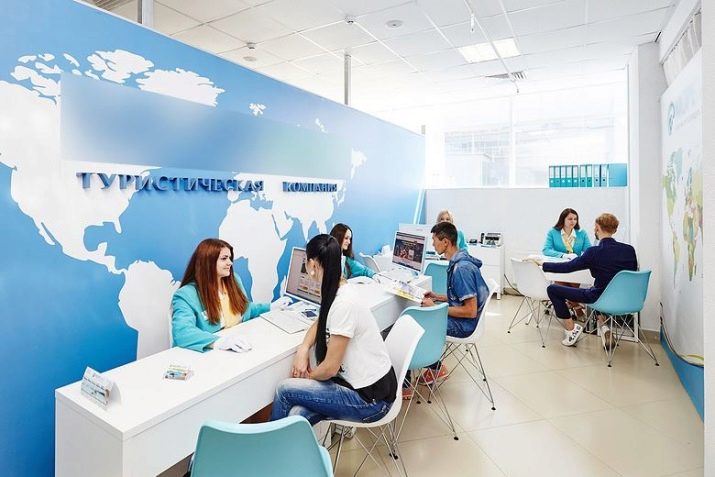
List of specialties related to tourism
It's time to get acquainted with the variety of professions, one way or another related to travel.
Tour operator
Immediately we want to make a reservation that the tour operator can be called directly by the company that provides a package of services for tourists, or its representative, that is, a specific specialist of this company. In order for the client to be satisfied with the trip, he recommended the operator to friends and acquaintances, and later used his services again, a whole network of contacts is being formed: with carrier companies, with hotels, visa centers, companies providing excursions, etc. The result of this cooperation is a fully equipped tourist product.

What is required from a tour operator? Planning and drawing up a travel program, calculating the final cost of a trip, booking tickets and hotel rooms (at the request of the client), obtaining a visa and insurance. In order to develop its own business, the tour operator is engaged in advertising and promotion, establishing contacts with new travel agencies, looking for profitable offers.
The profession of a tour operator and a travel agent should not be confused. Their main difference is that the operator is engaged in the development and formation of trips and is responsible for them, and the agent is an intermediary who resells the finished tour formed by the tour operator.The limit of his responsibility, as a rule, is limited to the proper provision of complete information about the travel conditions, the rights and obligations of the tourist, third parties, as well as timely payment for the services of the tour operator.
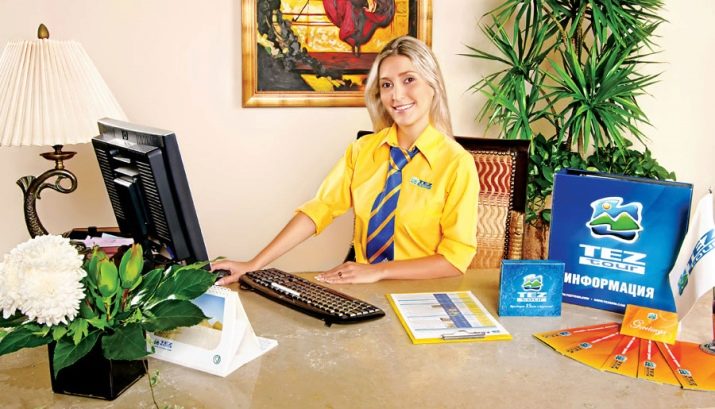
Guide
This is the so-called special case of a more extensive specialty - a guide. The guide leads a group of tourists along a certain route or sightseeing and only talks about it... The time allotted for the excursion, as a rule, does not exceed several hours, after which the guide either takes the next group and again leads it along the given route, or ends his working day.
The guide has more a wide range of responsibilities. He accompanies the tour group entrusted to him, showing its participants the sights of the city or the country as a whole, takes them to restaurants and shopping, tells interesting historical facts, and develops new exciting routes. At the same time, he monitors the comfort of the group members, as well as the observance of discipline and the rules of being in a particular place.
The guide can work both in a travel agency or agency, and in private. The workplace of the guide is a museum, art gallery or any other object of interest for tourists.
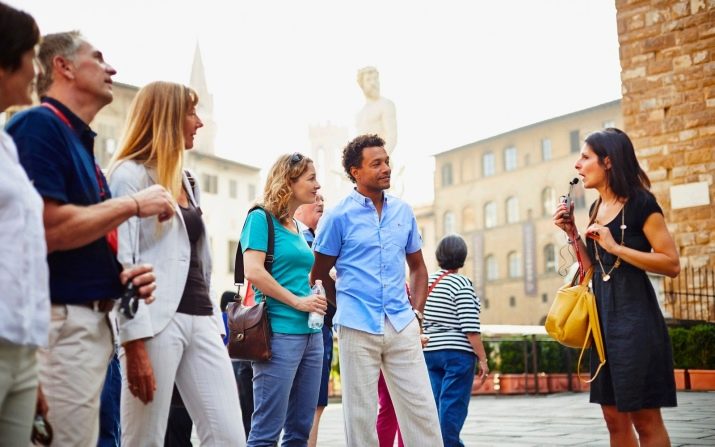
Hotel administrator
This is a specialist in the hotel business, whose duties include accommodating guests and ensuring a comfortable stay. Also, the hotel administrator must:
- register the client, ensure the delivery of his luggage to the provided room, explain the rules of conduct at the hotel, talk about additional services, issue the keys, hand over the received correspondence;
- keep track of all rooms, know which of them are occupied and which are free, book them on demand;
- ensure the readiness of the room to receive guests by monitoring the service personnel (make sure that the maids do the cleaning on time, change bed linen, towels, etc.);
- ensure the operation of all systems and devices (light bulbs, TV, Internet, water supply, sewage) with the help of appropriate specialists;
- monitor the timely payment of the number;
- be ready to answer questions from guests regarding their professional competence (where you can have dinner, where to go in the evening, etc.), call a taxi at the request of the guest.
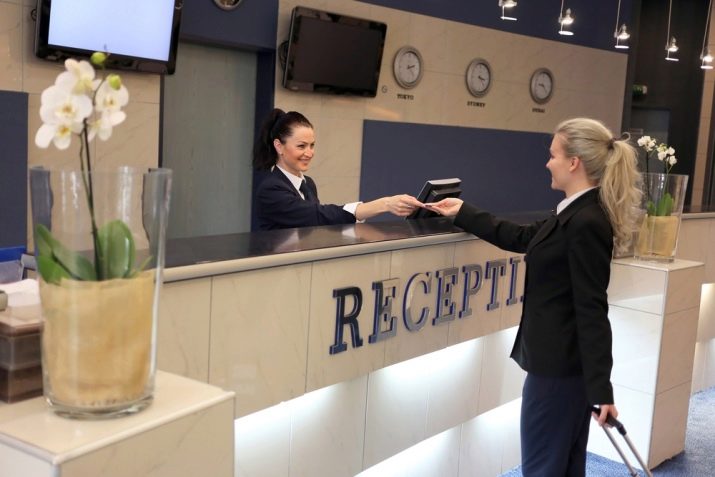
Tourism manager
A tourism manager is a person who deals with travel arrangements. It is he who helps the tourist to determine the route of travel: country, city, sights. He fully takes care of the paperwork, buying tickets, booking a hotel room, organizing excursion tours.
These specialists are always in demand in large travel agencies and tour operators.

Leisure organizer
The person organizing holiday events can work in shopping and entertainment centers or tourist establishments. He must:
- develop a script;
- select actors for roles;
- find a place for the celebration;
- arrange it properly;
- fully assume the responsibilities of the host of the event.
A specialist who has chosen a career in this field must be sociable and positive, have organizational skills, be a good speaker, be able to and love to work in a team.

Animator
The duties of the animator include attracting people's attention and their amusement, however, depending on the area of his work, you have to entertain them in different ways.
- Animators in shopping malls advertise any product or service, invite customers to visit a particular store, take part in a promotion, lottery, sale. As a rule, they are wearing bright costumes of fairy-tale characters; they distribute leaflets and advertising brochures to the visitors of the shopping center.
- Holiday animators they organize various competitions, play funny scenes, dance and sing.
- Resort hotel animators are designed to provide leisure time for guests: they play the role of morning exercises instructor, organize game events, dances, competitions.
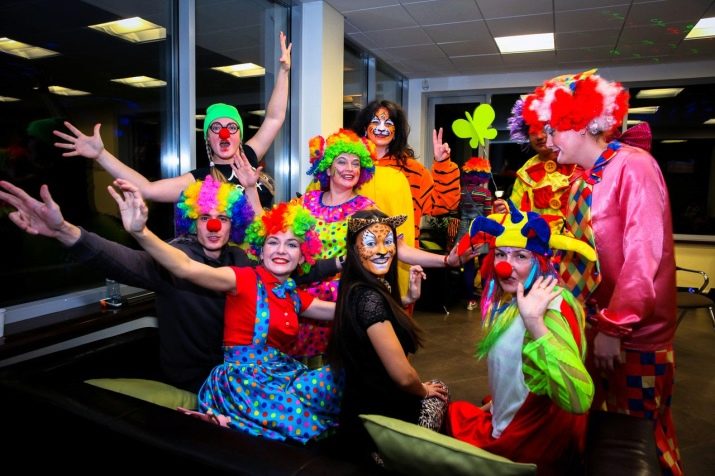
Cosmotourism manager
A completely new profession, "the profession of the future." The space tourism manager is responsible for development of programs for visiting near-outer space, and then - orbital complexes and other space structures.
This specialist must be very knowledgeable in the field of everything related to space, be able to competently and clearly convey to the client information about all the possible risks of his stay there, responsibilities, rules of conduct, etc.
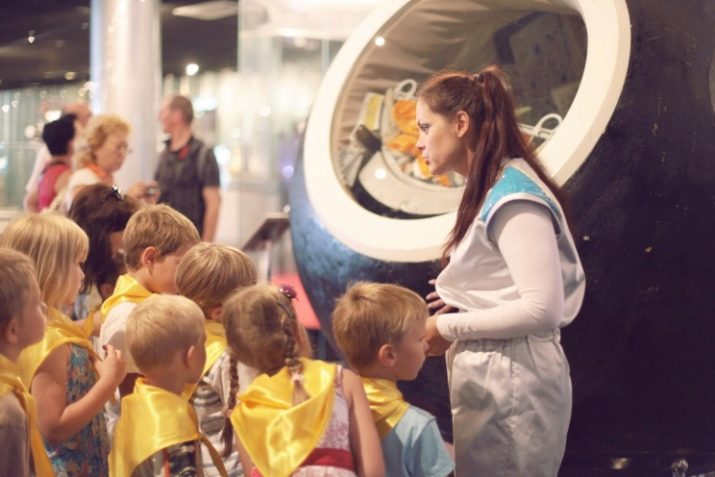
Customer Service Specialist
The place of work of this specialist is a travel company. Responsibilities:
- processing incoming requests from clients, solving their problems;
- organization of a comfortable stay in a vacation spot;
- advising clients on the services provided.
A customer service specialist must have remarkable intelligence and be able to quickly make effective decisions after analyzing the situation that has arisen. Its advantages will be politeness, non-conflict, tact, and the ability to conduct telephone conversations.

Spa specialist
A spa specialist is obliged to:
- analyze and evaluate the activities of the resort economy;
- know the state programs in the field of tourism;
- monitor compliance with national requirements in health resort organizations;
- study the practice of other similar institutions, implement the most successful of them.

Guide-translator
International tourism destinations are becoming more accessible and in demand; some countries do not even need a visa to enter. Many travelers prefer to come to a foreign country to get acquainted with its cultural values, but lack of knowledge of languages can become an obstacle to visiting excursions. A guide-translator is exactly the person who will help in this situation.
His responsibilities include visiting interesting places together with a tourist group and telling about the sights, life and history of the country, city or a specific location in the native language for tourists. The guide is also responsible for organizing the group's trips, for the safety of each of its members, and for solving problems that arise.
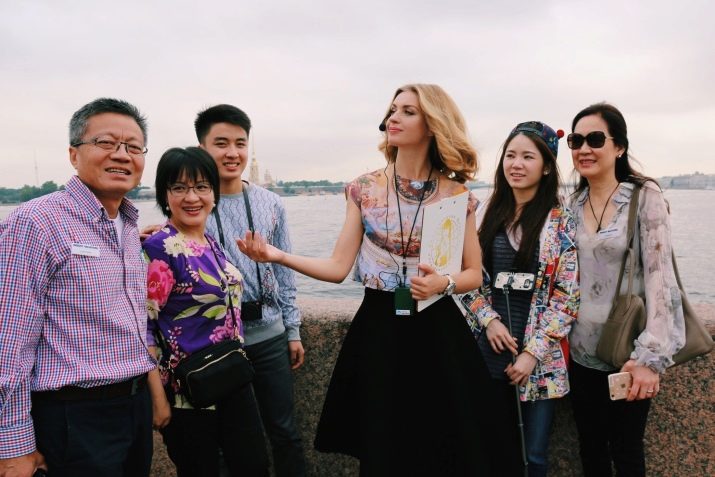
Requirements
Consider the basic requirements for a specialist who has chosen a career in the field of tourism. He must:
- know the tourist legislation of the Russian Federation, as well as the legal and ethical standards of behavior in foreign countries;
- speak English or another language necessary for staying abroad, especially if business trips are associated with frequent trips to a specific country;
- be sociable, be able to convince, attract clients;
- be able to smooth out conflicts;
- be organized, have the ability to simultaneously solve several problems;
- not to be afraid of unforeseen situations, to be able to solve them "on the fly", to prevent their possible occurrence.
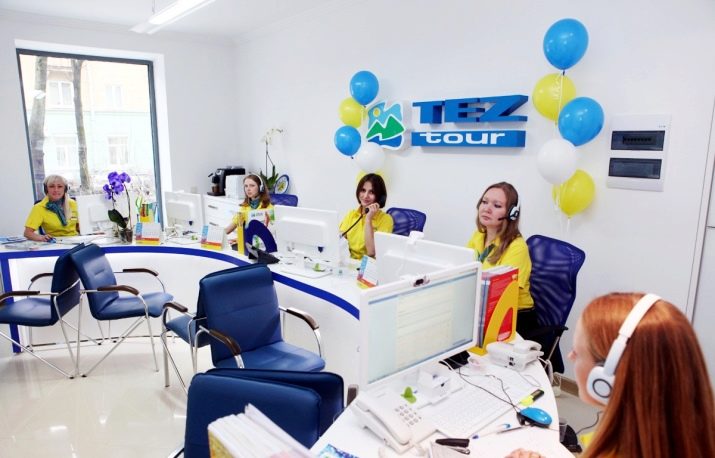
Education
You can study to become a specialist in the field of tourism at a technical school or college by choosing the direction "Tourism". To obtain secondary specialized education on the basis of 11 grades, you do not even need to take the Unified State Exam. The duration of study at the full-time department is 2 years, at the correspondence department - 2 years and 10 months.
After receiving the diploma, the graduate is free to choose: go to work in his specialty or continue his studies at a higher educational institution. Having entered the university in the direction of training related to tourism activities, the graduate of the college will be transferred to the 2nd year, reducing the term for obtaining higher education. Studying by correspondence, you can combine study with work in the field of tourism.
To work as a guide, tour guide, animator, special education is not required at all - it will be enough to take introductory courses, as a result of which a certificate will be issued, which will confirm that the applicant has the necessary skills and knowledge.








